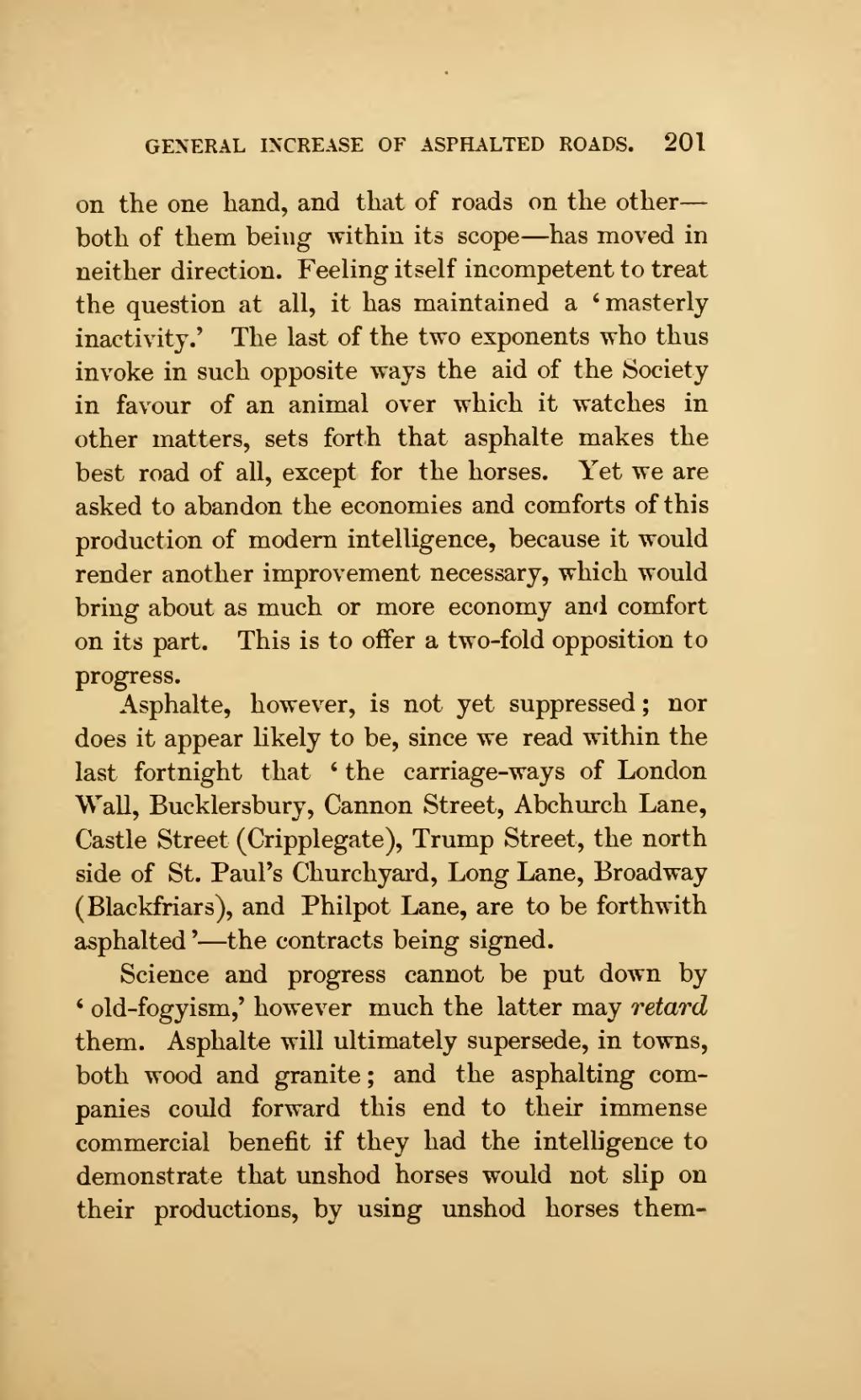on the one hand, and that of roads on the other—both of them being within its scope—has moved in neither direction. Feeling itself incompetent to treat the question at all, it has maintained a ‘masterly inactivity.’ The last of the two exponents who thus invoke in such opposite ways the aid of the Society in favour of an animal over which it watches in other matters, sets forth that asphalte makes the best road of all, except for the horses. Yet we are asked to abandon the economies and comforts of this production of modern intelligence, because it would render another improvement necessary, which would bring about as much or more economy and comfort on its part. This is to offer a two-fold opposition to progress.
Asphalte, however, is not yet suppressed; nor does it appear likely to be, since we read within the last fortnight that ‘the carriage-ways of London Wall, Bucklersbury, Cannon Street, Abchurch Lane, Castle Street (Cripplegate), Trump Street, the north side of St. Paul’s Churchyard, Long Lane, Broadway (Blackfriars), and Philpot Lane, are to be forthwith asphalted’—the contracts being signed.
Science and progress cannot be put down by ‘old-fogyism,’ however much the latter may retard them. Asphalte will ultimately supersede, in towns, both wood and granite; and the asphalting companies could forward this end to their immense commercial benefit if they had the intelligence to demonstrate that unshod horses would not slip on their productions, by using unshod horses them-
